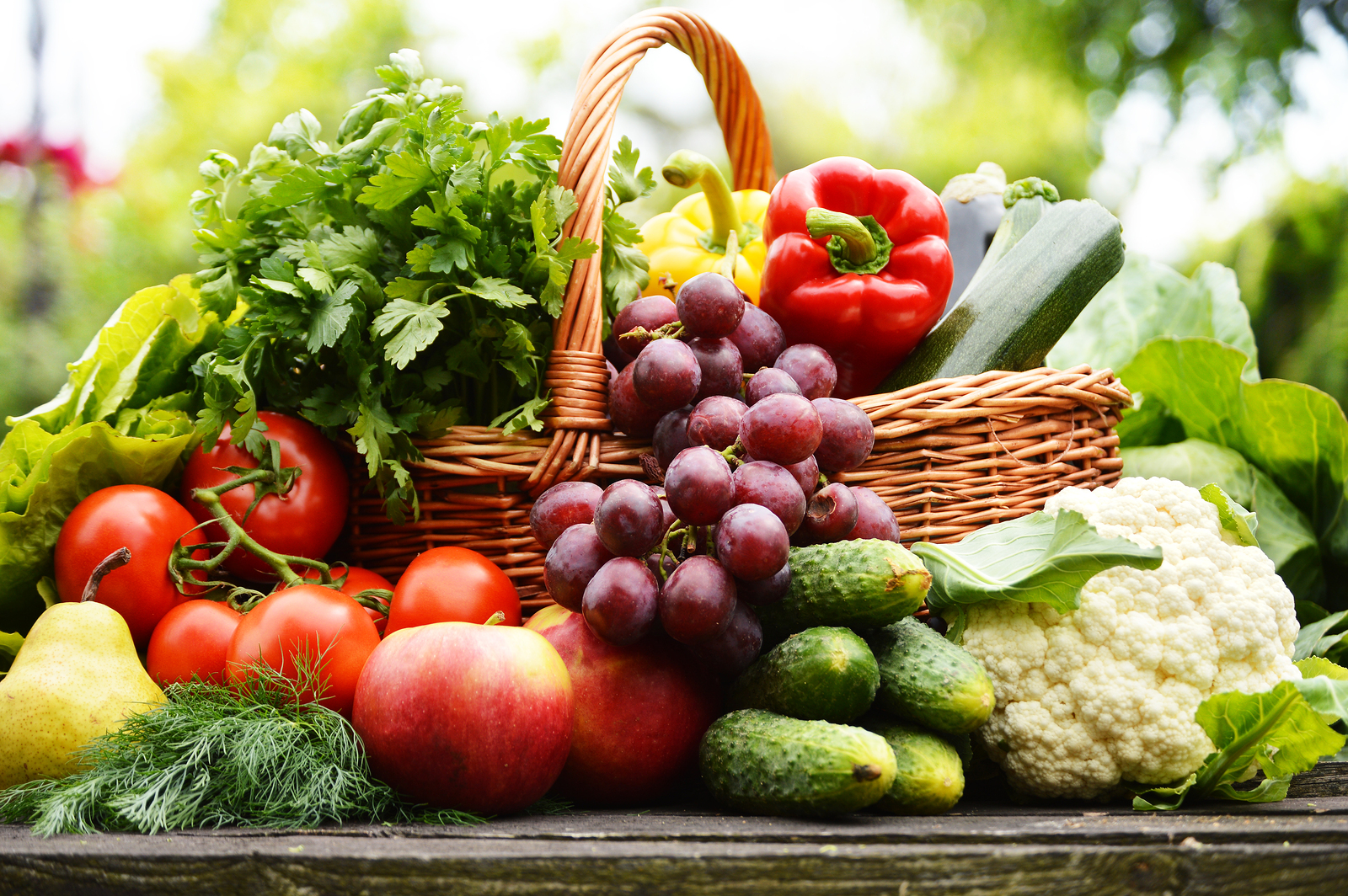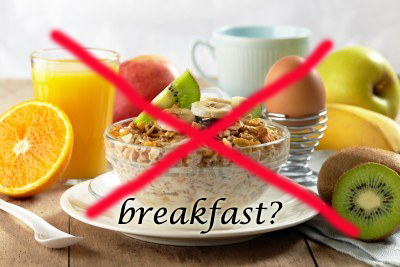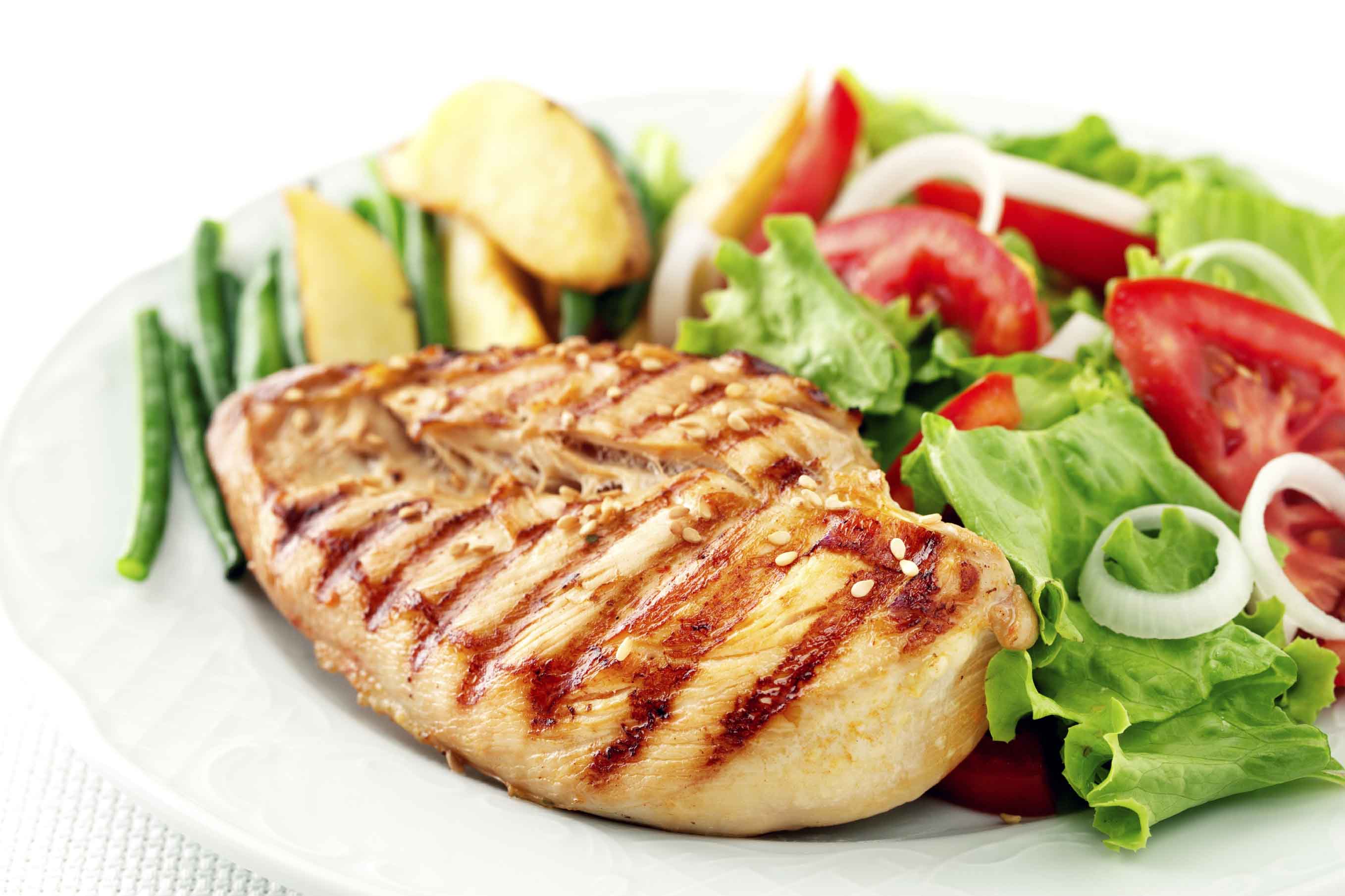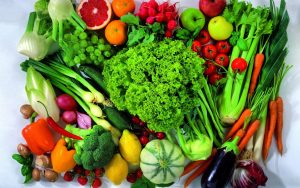
Nutrition 101 – For People With Central Sensitivity Syndromes
The overall rule of thumb for nutrition for people with CSS – avoid foods that are *rich* in anything, or at least make sure you’re not doubling up.
Banana milkshake for lunch + lots of asparagus for dinner =
too much potassium = tighter muscles and more muscle pain.
 Skip breakfast, skip lunch if you can, shoot for 3-4pm as the first meal of the day. If you can’t make it that long, stick to really small snacks, 1 serving only, 1 when you wake up, and 1 for lunch (e.g. a hard-boiled egg with a little salt and pepper, a handful of nuts or seeds or dried fruit, an apple). Keep 3-4pm meals balanced between filling and light. For dinner, go all out, but again, avoid rich foods or doubling up on rich foods. Don’t eat after 8pm, or after dinner, about 6-7pm for most people. This helps reduce the effect of foods on your quality of sleep.
Skip breakfast, skip lunch if you can, shoot for 3-4pm as the first meal of the day. If you can’t make it that long, stick to really small snacks, 1 serving only, 1 when you wake up, and 1 for lunch (e.g. a hard-boiled egg with a little salt and pepper, a handful of nuts or seeds or dried fruit, an apple). Keep 3-4pm meals balanced between filling and light. For dinner, go all out, but again, avoid rich foods or doubling up on rich foods. Don’t eat after 8pm, or after dinner, about 6-7pm for most people. This helps reduce the effect of foods on your quality of sleep.

Not eating from 8pm until 4pm the next day is a short fasting phase that can be very good for your health as long as you are getting enough calories in your meals. It’s also a great way to maintain weight. Not eating for a while allows you to burn a lot of calories, but this only works if you eat well after fasting. Eat modestly, but eat healthy. For those with severe chronic fatigue, caloric restriction plays a MAJOR part of maintaining and losing weight. This is because they do not have the energy for more than a light and brief workout regimen.
 For me, a caloric restriction of about 1,200 or so maintains weight with light workouts. Considering I’m sedentary 22 hours a day, 1,200 isn’t too low. In fact, anything over that and I WILL put on weight, and no amount of eating more than this gives me more energy. At 800-900 calories a day, I can lose a little bit of weight over time, but only for a month, then I stop losing weight and its back to 1,200 for at least another month. At 600 calories a day, I can lose a lot of weight, but the weakness, lightheadedness, and brain fog is NOT worth it, unless weight loss is actually a medical emergency, then you may be choosing the lesser of two evils.
For me, a caloric restriction of about 1,200 or so maintains weight with light workouts. Considering I’m sedentary 22 hours a day, 1,200 isn’t too low. In fact, anything over that and I WILL put on weight, and no amount of eating more than this gives me more energy. At 800-900 calories a day, I can lose a little bit of weight over time, but only for a month, then I stop losing weight and its back to 1,200 for at least another month. At 600 calories a day, I can lose a lot of weight, but the weakness, lightheadedness, and brain fog is NOT worth it, unless weight loss is actually a medical emergency, then you may be choosing the lesser of two evils.
 Make sure you get your daily meat, dairy, veggies, fruits, and grains, but try for one per meal (e.g. fruit + dairy, grains + veggies, meat + (wild card). Use single servings. Avoid using the same food twice in one day, it makes things a lot less complicated. Make everything from scratch so you know exactly what is in it. Buy fresh if you can, organic is best, but you can go the frozen route too. If pesticides make you ill, go organic. If that’s not an option (e.g. cost, availability), start peeling everything you can (e.g. potatoes, apples) and freeze and peel what you can’t peal at lower temperatures (e.g. strawberries).
Make sure you get your daily meat, dairy, veggies, fruits, and grains, but try for one per meal (e.g. fruit + dairy, grains + veggies, meat + (wild card). Use single servings. Avoid using the same food twice in one day, it makes things a lot less complicated. Make everything from scratch so you know exactly what is in it. Buy fresh if you can, organic is best, but you can go the frozen route too. If pesticides make you ill, go organic. If that’s not an option (e.g. cost, availability), start peeling everything you can (e.g. potatoes, apples) and freeze and peel what you can’t peal at lower temperatures (e.g. strawberries).
Drink lots of water, squirt a little lemon juice in there if you need some flavor. Avoid refined sugars and artificial sugars at all costs.
I can only share what has been right for me. Talk to your doctor and nutritionist to help design the nutrition plan that is right for you.

